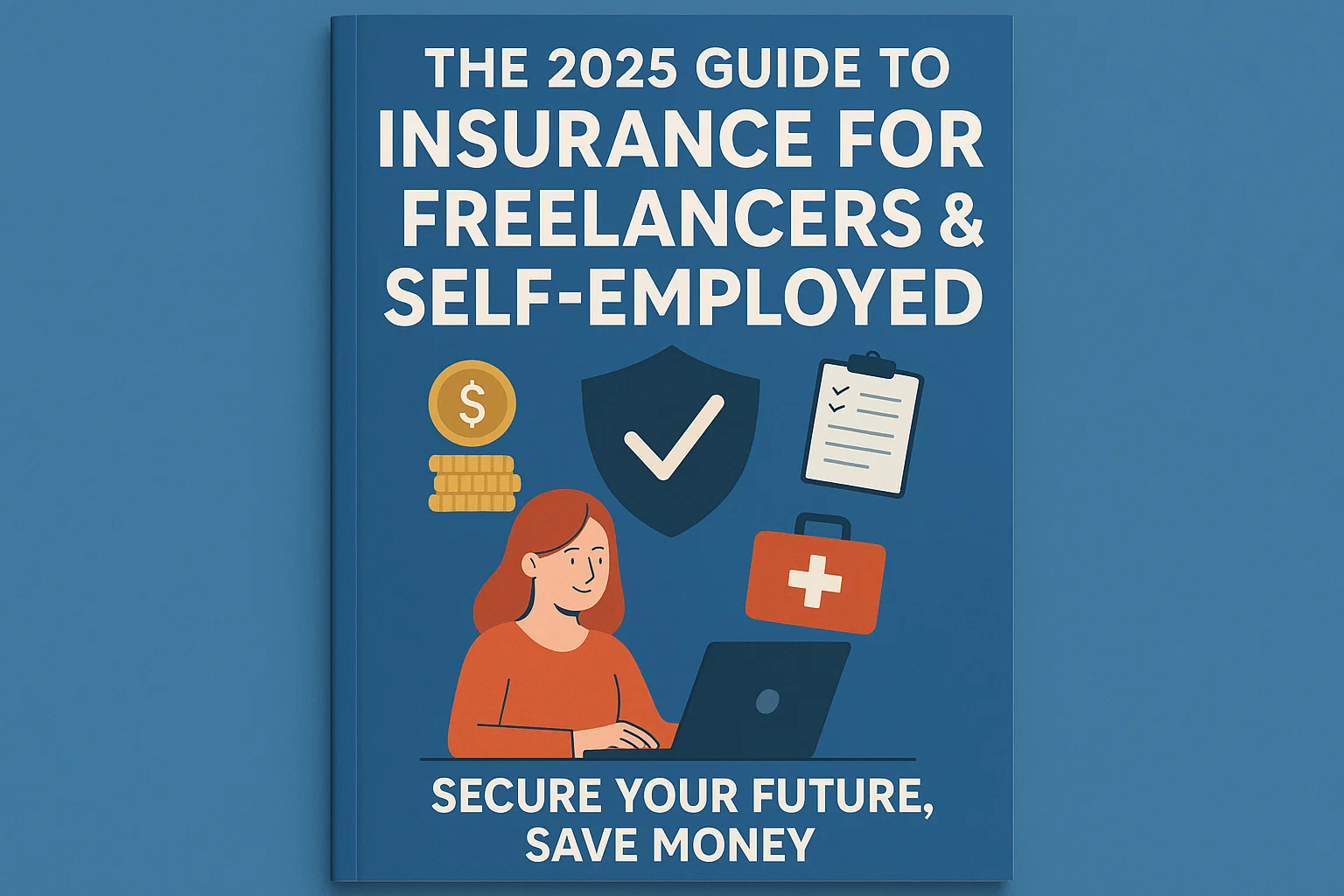The 2025 Guide to Insurance for Freelancers & Self-Employed: Secure Your Future, Save Money

The 2025 Guide to Insurance for Freelancers & Self-Employed: Secure Your Future, Save Money
The rise of the gig economy and remote work has made freelancing more attractive than ever, but leaving salaried employment brings unique financial risks—especially when it comes to insurance. This comprehensive 2025 guide is designed to help freelancers and self-employed professionals worldwide understand their insurance options, maximize coverage, and save money in a rapidly evolving work landscape.
Why Insurance Is Essential for Freelancers in 2025
- Unlike full-time employees, freelancers don't receive employer-sponsored health, disability, or liability insurance.
- Unexpected medical bills, client disputes, or work interruptions can wipe out months of hard-earned income.
- Advertisers pay top dollar for insurance-related search terms, making this a high-CPC niche for global audiences.
Types of Insurance Every Freelancer Should Consider
- Health Insurance: Research local and global marketplaces for individual or family policies; check for digital nomad or expat packages if you travel frequently.
- Income Protection / Disability Insurance: Covers a large portion of your income if injury or illness prevents you from working—essential for those with dependents or recurring expenses.
- Professional Liability Insurance: Protects you from claims related to missed deadlines, errors, or alleged negligence.
- Business Property Insurance: Covers your equipment (laptops, cameras, software licenses), in case of theft or damage.
- Life Insurance: Ensure financial stability for your loved ones if the unexpected happens.
How to Choose the Right Insurance Plans (and Save Money)
- Compare plans via reputable online platforms—look for peer reviews, hidden fees, and global claim networks.
- Opt for higher deductibles to lower premium costs if you have emergency savings.
- Bundle policies (health + disability + property) for discounts and streamlined claims.
- Choose insurers with digital claim support for fast, paperless reimbursement—especially if you work internationally.
- Use tax-advantaged health or retirement accounts (HSAs, IRAs, etc.) to pay premiums and save on taxes.
High CPC Insurance Keywords for 2025
Bloggers, agencies, and platforms targeting freelancers and the self-employed are seeing *record ad rates* on these keyword groups:
- “Best health insurance for freelancers”
- “Income protection insurance self-employed”
- “Freelancer business liability insurance”
- “Global digital nomad health plan”
- “Freelancer disability insurance quotes”
Frequently Asked Questions (FAQs)
Q1: Is freelancer insurance expensive?
Premiums vary widely; bundling and comparing quotes yearly can reduce costs by up to 35%.
Q2: Can I buy insurance as a digital nomad?
Yes—several international insurers now offer fully digital plans designed for location-independent workers.
Q3: What if I get sick and can't work?
Disability or income protection insurance is essential for covering lost income during illness or injury.
Action Steps for Freelancers
- Assess your risk exposure (health, client disputes, equipment loss).
- List all income streams, dependents, and assets needing protection.
- Request quotes from three independent brokers or online marketplaces.
- Review policy exclusions and claim support ratings carefully before committing.
- Mark your calendar for annual policy reviews to take advantage of new plans and rates.
Conclusion
Insurance is not a luxury—it’s a necessary financial tool for surviving and thriving as a freelancer or self-employed professional in 2025. Take charge of your future, protect your income, and keep your business running smoothly—no matter what the world throws at you.
Comments (3)